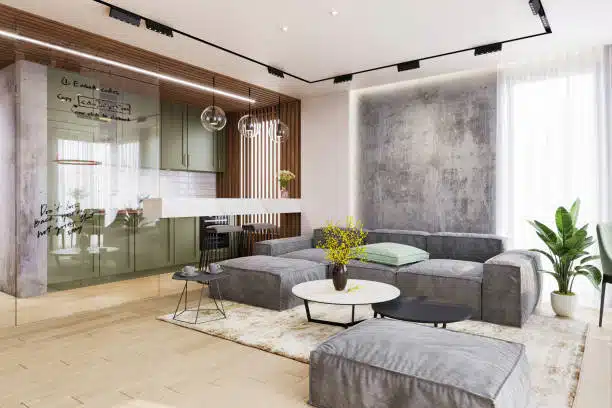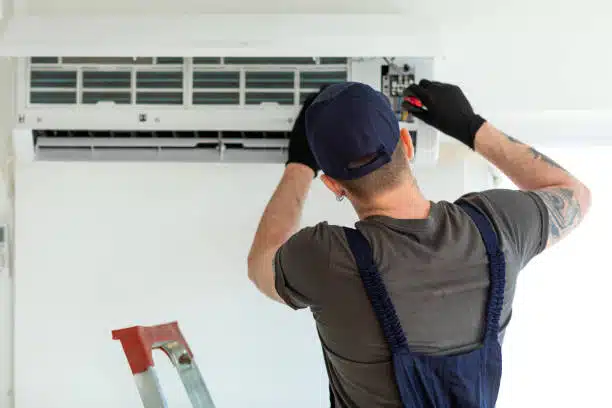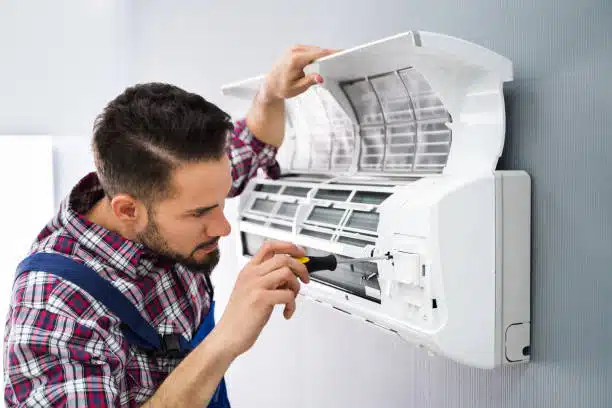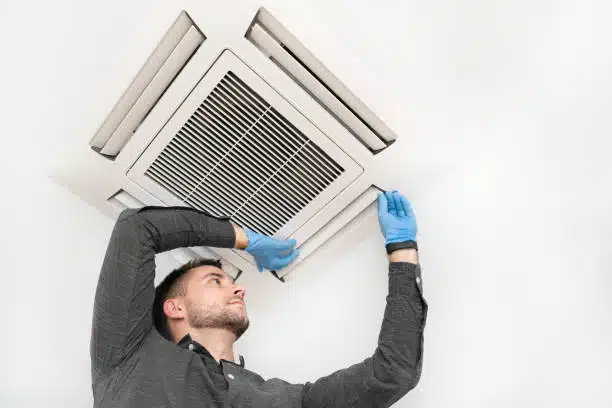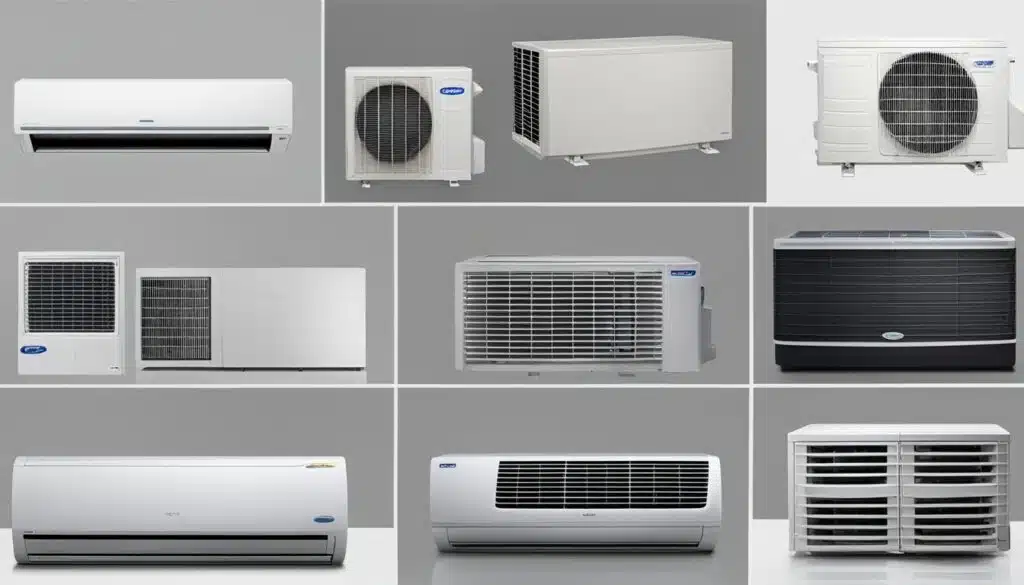Welcome to our comprehensive guide on choosing the perfect air conditioning system for your needs! Whether you’re looking for an AC unit, cooling system, HVAC, air conditioner, central air, ductless mini split, or heat pump, we’ve got you covered. With so many options available, it can be overwhelming to select the right system for your home or office. But worry not, we are here to help you make an informed decision!
Air conditioners offer a range of benefits, from improving human efficiency and air quality to managing heat. However, choosing the best air conditioning system requires careful consideration of several factors. The type of unit, capacity, energy rating, and specific features all play a crucial role in determining the ideal fit for your space.
Throughout this guide, we will explore various types of air conditioning units, factors to consider when making a selection, understanding different types and features, determining the right capacity, energy efficiency and cost considerations, top brands in Australia, key features to prioritize, and the importance of professional installation and maintenance.
So, whether you’re looking to keep your home cool during the scorching Australian summers or maintain a comfortable working environment, read on to find everything you need to know about choosing the perfect air conditioning system!
Types of Air Conditioning Units
When it comes to choosing an air conditioning unit for your home, you have several options to consider. The most common types of air conditioning units used in Australian homes are split systems, window wall units, portable air conditioners, and evaporative coolers.
Split Systems:
Split systems are the most popular choice and consist of an indoor unit and an outdoor unit connected by pipes. This type of system is ideal for cooling one room or an open-plan area. Split systems offer efficient cooling and can be controlled individually for each room.
Window Wall Units:
Window wall units are single box units that are installed either in a window or through an external wall. They are a good option for smaller rooms and provide a convenient and cost-effective cooling solution.
Portable Air Conditioners:
Portable air conditioners are easy to move from room to room and do not require any installation. They are suitable for cooling individual rooms and offer flexibility, but they are generally less efficient than split systems.
Evaporative Coolers:
Evaporative coolers work by drawing in large volumes of air through water-soaked pads. They are effective in dry climates and provide a natural and energy-efficient way of cooling the air. However, they require regular maintenance and are not suitable for humid areas.
Factors to Consider When Choosing an Air Conditioner
When it comes to choosing the right air conditioner for your needs, there are several important factors to consider. These factors will help ensure that you select a unit that is suitable for your room size, installation type, noise level preferences, and energy efficiency requirements.
The first factor to consider is the capacity of the air conditioner. This is determined by the size of the room that needs to be cooled. For rooms below 80 square meters, window, portable, and split system air conditioners are recommended. It’s important to choose a unit with the appropriate capacity to ensure efficient cooling and optimal performance.
Another consideration is the installation type. Depending on your space and preferences, you can opt for wall, window, or ceiling installation. Each type has its own advantages and limitations, so it’s important to choose the option that best suits your needs.
Noise level is also an important factor, especially if you plan on using the air conditioner in your bedroom or other quiet spaces. Look for units that have low noise levels or offer features like “sleep mode” to ensure a peaceful environment.
Finally, energy efficiency is crucial for both environmental and cost-saving reasons. Look for air conditioners with high energy efficiency ratings, as these units will consume less electricity and help lower your energy bills in the long run.
Room Size
When choosing an air conditioner, consider the size of the room that needs to be cooled. Rooms below 80 square meters are suitable for window, portable, and split system air conditioners.
Installation Type
Choose the installation type that best suits your space and preferences, whether it’s wall, window, or ceiling installation.
Noise Level
If you plan on using the air conditioner in a bedroom or other quiet spaces, consider units with low noise levels or features like “sleep mode” for a peaceful environment.
Energy Efficiency
Select air conditioners with high energy efficiency ratings to reduce electricity consumption and save on energy bills in the long run.
Understanding Air Conditioner Types and Features
When selecting an air conditioner, it’s essential to understand the different types and features available. This knowledge will help you make an informed decision based on your specific needs.
Portable Air Conditioner
A portable air conditioner offers convenience and flexibility as it can be easily moved around. It doesn’t require any installation and can be used in different rooms. However, it’s important to note that portable air conditioners are generally less efficient compared to other types.
Inverter System
An inverter system is an energy-saving option that adjusts the compressor speed based on the cooling demands. This leads to more efficient operation and reduced energy consumption. Inverter systems also offer precise temperature control, which can contribute to greater comfort.
Non-Inverter System
A non-inverter system operates at a fixed speed and doesn’t have the ability to adjust the compressor according to the cooling requirements. While they work automatically without regulation, non-inverter systems are generally less energy-efficient compared to inverter systems.
Reverse-Cycle Air Conditioner
A reverse-cycle air conditioner is a versatile option that provides both cooling and heating functions. This makes it suitable for year-round use, allowing you to maintain a comfortable indoor temperature regardless of the season. Reverse-cycle air conditioners are especially beneficial in areas with varying climate conditions.
Understanding the different types and features of air conditioners can help you choose the right one for your needs. Whether you opt for a portable air conditioner for mobility, an inverter system for energy efficiency, or a reverse-cycle air conditioner for year-round comfort, make sure to consider your specific requirements and consult with professionals for expert advice.
Determining Air Conditioner Capacity
When it comes to choosing the right air conditioner for your space, determining the appropriate capacity is essential. The capacity of an air conditioner is measured in British Thermal Units (BTU), which indicates the cooling power of the unit. By understanding how to calculate air conditioner capacity, you can ensure efficient cooling and optimal performance.
To calculate the capacity required for your room, you need to consider several factors. First, determine the size of the room in square meters. A general rule of thumb is that for every square meter, you need approximately 125 BTU. So, for a room that is 20 square meters, you would need an air conditioner with a capacity of 2500 BTU. It’s important to note that this is just a rough estimate, and other factors must be taken into account.
Other factors that can affect the required capacity include insulation, ceiling height, sun exposure, and the number of occupants in the room. If the room has poor insulation, more cooling capacity may be needed. Additionally, rooms with high ceilings or excessive sun exposure may require higher capacity air conditioners. On the other hand, if the room is rarely occupied or has only a few occupants, a lower capacity unit may be sufficient.
By considering the size of the room, insulation, ceiling height, sun exposure, and occupancy, you can determine the air conditioner capacity needed to effectively cool your space. It’s always best to consult with a professional to ensure accurate calculations and to choose the right unit for your specific needs.
Energy Efficiency and Cost of Running an Air Conditioner
When choosing an air conditioner, energy efficiency is a key factor to consider. Opting for an energy-saving air conditioner can result in significant long-term savings on electricity bills, offsetting the initial higher cost. One important measure of energy efficiency is the Energy Efficiency Ratio (EER), which indicates how efficiently the unit uses electricity. Higher EER ratings translate to better energy efficiency, meaning lower energy consumption and reduced environmental impact.
In addition to the initial purchase cost, it’s important to consider the running costs of an air conditioner. Running costs include the electricity expenses associated with operating the unit. Energy-efficient models with higher EER ratings tend to have lower running costs, as they consume less power to achieve the desired cooling effect. Therefore, investing in an energy-efficient air conditioner can not only save you money in the long run but also contribute to a more sustainable future.
When evaluating the energy efficiency and running costs of an air conditioner, it’s advisable to look for products that carry energy efficiency labels or certifications. These labels provide valuable information about the unit’s energy performance and can guide you in making an informed decision. By considering both energy efficiency and running costs, you can choose an air conditioner that strikes the right balance between performance, affordability, and environmental impact.
Best Air Conditioner Brands in Australia
Choosing the right air conditioner brand is essential to ensure reliability and customer satisfaction. In Australia, several brands have established themselves as leaders in the market. These brands have consistently delivered quality products and excellent customer service, earning them a solid reputation in the industry.
Daikin
Daikin is a highly respected air conditioner brand known for its innovative technology and energy-efficient systems. With a wide range of products, Daikin offers reliable and high-performance air conditioners suitable for both residential and commercial use. Customer reviews often praise the durability and cooling performance of Daikin air conditioners.
Mitsubishi Electric
Mitsubishi Electric is another top brand in the Australian market, offering a comprehensive range of air conditioning solutions. Their air conditioners are known for their advanced features, energy efficiency, and quiet operation. Customers appreciate the reliability and quality of Mitsubishi Electric products.
Panasonic
Panasonic is a trusted brand that focuses on delivering cutting-edge technology and superior performance. Their air conditioners are well-regarded for their energy efficiency, precise temperature control, and durability. Many customers have found Panasonic air conditioners to be a reliable and long-lasting investment.
Fujitsu
Fujitsu is a popular choice among Australian consumers, offering a wide range of air conditioning systems that cater to different needs and budgets. Fujitsu air conditioners are known for their quiet operation, energy efficiency, and user-friendly features. Customers often highlight the brand’s exceptional customer support and reliability.
Key Features to Consider in an Air Conditioner
When choosing an air conditioner, it’s important to consider the key features that can enhance your comfort and convenience. These features can make a significant difference in your overall experience with the air conditioning system. Here are some key features to look out for:
Thermostat Control
Having precise control over the temperature is essential for maintaining a comfortable indoor environment. Look for an air conditioner that offers thermostat control, allowing you to set and maintain the desired temperature accurately. This feature ensures that you can enjoy the perfect climate at all times.
Programmable Timers
Programmable timers are a convenient feature that allows you to automate the operation of your air conditioner. With programmable timers, you can set specific times for the air conditioner to turn on and off, helping you save energy and ensuring that your home is at the desired temperature when you arrive.
Noise Level
Noise level is an important consideration, especially if you plan to use the air conditioner in your bedroom or any other area where noise can be a concern. Look for an air conditioner that operates quietly, ensuring a peaceful and undisturbed environment while keeping you cool.
Air Filtration
Air filtration is a feature that helps improve the air quality in your home. It removes dust, allergens, and other airborne particles, ensuring that the air you breathe is clean and healthy. This feature is particularly beneficial for individuals with allergies or respiratory conditions.
Smart Features
Smart features are becoming increasingly popular in modern air conditioners. These features allow you to control your air conditioner remotely through your smartphone or integrate it with home automation systems. With smart features, you can adjust the temperature, monitor energy usage, and even receive maintenance alerts, providing convenience and peace of mind.
By considering these key features, you can choose an air conditioner that not only keeps you cool but also provides added comfort, convenience, and improved air quality.
Installation Process and Considerations
When it comes to installing your air conditioning system, it’s essential to opt for professional installation to ensure optimal performance and longevity. Hiring a skilled and experienced installer, like Alpha Air, will guarantee a seamless and hassle-free setup. Professional installers have the expertise to handle the complex installation process efficiently, ensuring that every component is correctly connected and functioning as it should.
Maintenance is another critical aspect of owning an air conditioner. Regular upkeep will keep your system running smoothly, prevent potential issues, and extend its lifespan. It is recommended to schedule regular maintenance checks with a trusted professional who can inspect your unit, clean filters, and address any necessary repairs promptly.
When considering an air conditioner, be sure to check the warranty offered by the manufacturer. A comprehensive warranty provides peace of mind and protection against unexpected expenses. Alpha Air offers reliable warranty options, ensuring that you’re covered in case of any unforeseen issues with your system.
With professional installation, dedicated maintenance, and a reliable warranty from Alpha Air, you can enjoy the benefits of a well-functioning air conditioning system for years to come. Don’t compromise on quality—choose Alpha Air for all your air conditioning needs.


